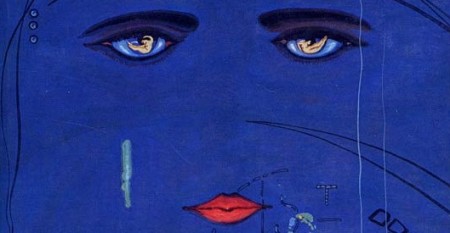#April2011
WEEKEND OPEN BAR: Nick Carra-Gay?
[WEEKEND OPEN BAR: The one-stop ramble-about-anything weekend post at OL. Comment on the topic at hand. Tell us how drunk you are. Describe a comic you bought. This is your chance to bring the party.]
When it comes to the pantheon of classic American literature, it’s hard to argue against the inclusion of The Great Gatsby. Fitzgerald’s seminal novel is an uncompromising examination of class divisions, the promise of the American dream, constructed identity, and the power of love. Who among us can’t sympathize with Gatsby’s yearning, his desire to become something greater than what he is? Is there anyone who hasn’t at least contemplated throwing caution to the wind, casting off the shackles clamped on at birth, and chasing the unattainable?
I fucking hope not.
Every time that I read The Great Gatsby, I feel as though I have a firm grasp on the title character — poor kid dreams of a life beyond his means, seizes the rare opportunity to move beyond his station, falls in love with a girl beyond his means, stops at nothing to fine tune a new persona, gets tangled up in crime, can’t acknowledge that his aspiration has been reduced to mere nostalgia, and is murdered for his inability to forfeit impossible ambitions. And while I’m absolutely enthralled by the transformative journey of James Gatz, I can’t say that he is the character most capable of piquing my interest.
It is Nick Carraway that I see as the most fascinating figure. And maybe the most enigmatic.
As the narrator, Carraway is responsible for taking us through The Great Gatsby’s alternately glamorous and sordid adventures. Between his actions and exposition, it would at first seem as though Carraway can be trusted as an objective, reliable narrator. In fact, the novel opens with a declaration of just this sort:
“In consequence I’m inclined to reserve all judgements, a habit that has opened up many curious natures to me and also made me the victim of not a few veteran bores.” (5)
Right from the get-go the reader is led to believe that Nick will be presenting his story without bias, prejudice, or exaggeration. Which is sweet, I suppose, as these misdirections can lead one astray when traveling on the path of Truth. When a story is recounted, isn’t it of the utmost importance that all the facts and figures be in order, quotes presented verbatim, images recreated without blemish?
So if we want to, it’s easy to let Nick Carraway mollify our skepticisms — this is exactly what I did when I first read the book. After all, it’s both comforting and easy to take words at face value, never rousing suspicions that there may be an element of deception abound. But when one keeps a keen eye turned to the page, it’s a bit more difficult to invest complete faith in the absolute veracity of the narrator’s yarn.
For me, a turning point comes at the end of Chapter III. While recounting how he has been sending weekly love letters to a girl back home, Nick also expresses his physical attraction to Jordan Baker. He then states,
“Everyone suspects himself of at least one of the cardinal virtues, and this is mine: I am one of the few honest people that I have ever known.” (63)
As I read that line for the first time, I saw all sorts of flags go up. My knee-jerk reaction, off-the-cuff thought was, “What type of person feels compelled to constantly assert their honesty?” The answer I settled on?
A liar.





